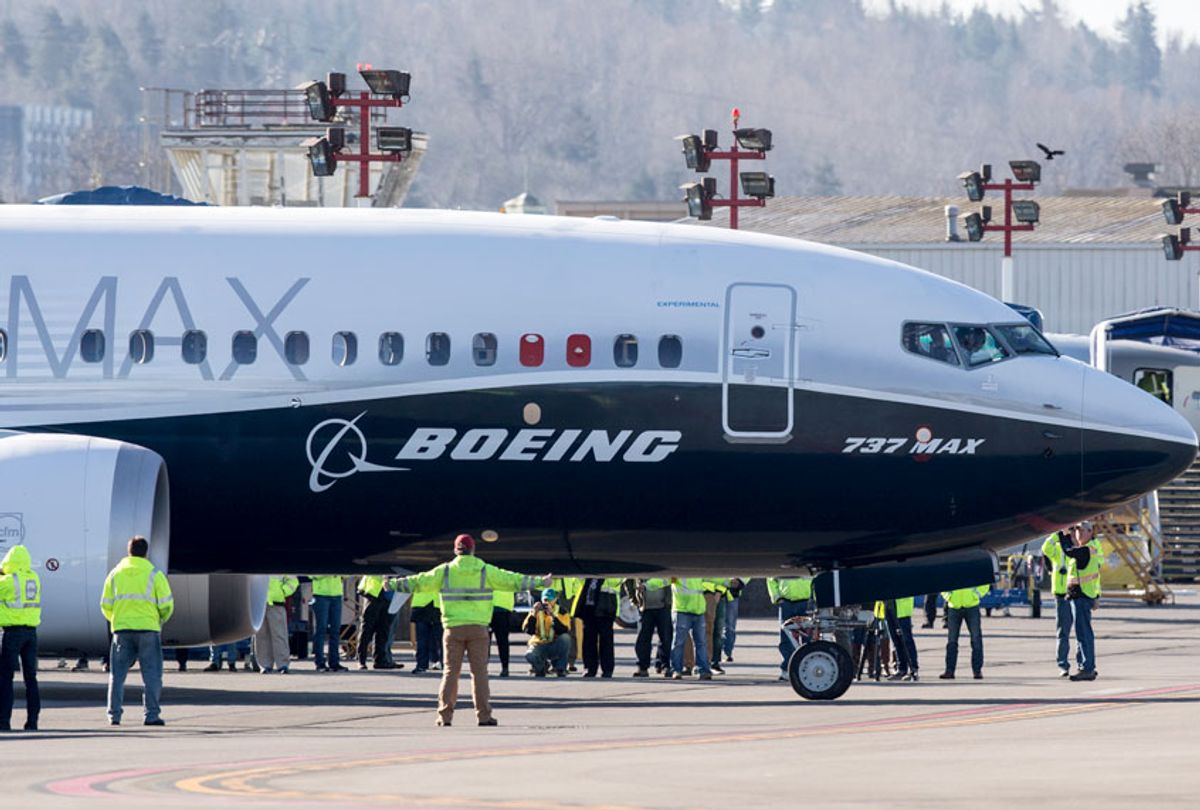Boeing may be paying a steep price after two of its 737 Max 8 airliners have crashed within the last five months.
Last Sunday, an Ethiopian Airlines 737 Max 8 crashed shortly after taking off from Addis Ababa, killing all 157 people aboard. In October a Lion Air flight, also involving a 737 Max 8, went down in Indonesia, causing the deaths of 189 people.
While the two accidents appear similar, investigation of the Ethiopia crash has only started. According to the New York Times, investigators in the Indonesia crash determined that updated Boeing software could have sent the plane into a fatal descent, based on incorrect information fed into the computer system.
On Monday, the Chinese government announced it would ground all 96 of the 737 Max 8 aircraft flown by its airlines. Indonesia and Ethiopia, where the crashes occurred, have done likewise, and other nations may follow. Whether the 737 Max 8 is safe to fly is now clearly a matter of public concern, and the financial consequences could be huge for Boeing, which saw its stock fall by more than 8 percent on Monday, according to NBC News. All by itself, Boeing's precipitous drop pushed the Dow Jones average into negative territory for the day, an indication of Boeing's relative importance and the severity of the crisis it now faces.
"Boeing still makes the safest airplanes anywhere in the world and especially in the U.S.," Ross “Rusty” Aimer, CEO of Aero Consulting Experts, told Salon. He described the three American carriers that fly the 737 Max 8 -- United, American and Southwest — as "major airlines with pilots that are highly experienced, and they have great training programs. So I'm not so much worried about these aircraft that are being operated in the U.S."
Southwest Airlines has 34 of the 175-seat Max 8s in its fleet, and American Airlines has 24. United Airlines does not operate the Max 8 but has 14 of the generally similar Max 9s, according to USA Today. Both Southwest and American have reportedly received customer complaints from passengers who do not want to fly in a Max 8.
Aimer said it was "too early to speculate" about the cause of the Ethiopia accident, but noted, "There are some similarities between this latest crash and the Lion Air crash. ... When you have basically a brand new aircraft that has two crashes within a very short timeframe, there is some concern. It doesn't look very good for Boeing at the moment."
Aimer added that in his years as a pilot he had flown every Boeing model and described them as "extremely safe, stable airplanes." The Max 8 is a new version of Boeing's 737, the company's most popular aircraft, he explained, which might itself be part of the problem. "At some point, you know, you can't keep modifying your old 1980s Honda Civic, and that's what Boeing did with the 737," he said.
The 737 "was initially designed for about an hour of flight, short hops, and they kept adding plugs into the airplane, extending the range," Aimer said. "They could have modified their 757, which is an extremely well-designed aircraft. But they chose to keep modifying the 737 and they kind of deviated from their concept of making extremely safe airplanes to selling more airplanes. I would imagine that instead of aerospace engineers and pilots and designers, now more or less the bean-counters that Boeing dictate what aircraft to build."



Shares